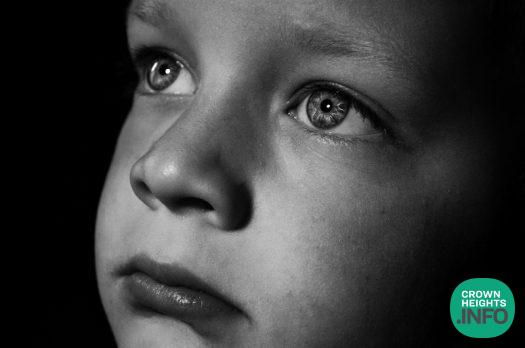
The Rebbe’s Advice on Dealing With Loss
Continued from last week.
Question: There was recently a tragic event in our family. My niece, a mother of three young children, lost her husband to a terrible illness. My niece, who is naturally very broken-hearted and depressed now, is still not sure how to explain the death to her young children. Has the Rebbe ever written about this to people?
Answer: In our previous article, we discussed the Rebbe’s responses to the feelings of the mother and the proper message that should be given over to the children. This week, we will discuss the final question:
What are the best steps for the future of the family?
In 1977, Mrs. Shulamis Shebi – a recently-widowed woman from Ashkelon- wrote a letter to the Rebbe. She included pictures that her recently-deceased husband took in the Sinai desert. The Rebbe wrote hre back a long letter, (right before the Rebbe suffered a heart-attack) and included the following message:
“ I will hope that you will treat the following words, even though it would seem that I am mixing into your personal life. Since everything is Hashgacha Pratis, (and we are corresponding), I have the responsibility not to withhold my personal opinion about the following matter:
It is self-understood the great pain in losing a dear husband and a father of the family. Notwithstanding the above, since you were blessed with children, it is your diving and holy mission to ensure that these children live a (relatively) normal life. I mean that you should work on getting remarried.
There is a popular misconception that by remarrying, you are somehow betraying and causing pain to the soul of the departed. It is to the contrary: The soul of the departed is in the world of truth, and sees each thing in its most truthful way. If , because of feelings towards the departed, it prevents a person from doing what is right for the children, it only brings suffering to the soul of the departed – to which I do not want to elaborate. I understand that it is a very difficult decision to make from an emotional perspective, yet Hashem gives each person the necessary strength to make the right decisions.
Another point, in regards to the children: The earlier the decision is made, and thus the younger the children are, the easier it will be for them to accustom themselves to a new person in their lives…. I have seen this situation many times, and this is the Torah way of dealing with this situation and it will be a benefit for the woman and her children.” (Igros volume 30 page 10 #10682).















